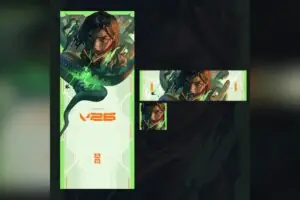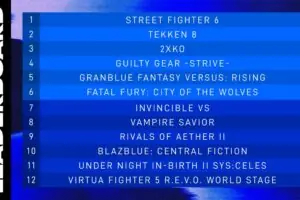ESIC‘s long-awaited first set of findings regarding the coach spectating exploit that has run through professional Counter-Strike play has finally been released after a full month of investigation.
Note that this is only the first set of released data, which implies further releases with similar consequence for the scene, although ESIC notes that this will likely be the largest release; individuals named and punished within these findings are likely to be the worst offenders that ESIC has uncovered thus far.
Within the documentation released by ESIC (which comes in two parts, ESIC outlines precisely how the findings are weighted (which determines consequence) along with amendments to previously offered punishments.
Note that ESIC is planning on a final release at the end of October in what they currently plan as an addendum to these findings.
37 individuals have received punishment from the Esports Integrity Commission for their actions taken within professional play of Counter-Strike: Global Offensive. ESIC requests tournament organizers that are not members of ESIC to adhere to the punishments outlined within; note that while that cooperation is optional, there will likely be a heft of public backlash should organizations skirt the rulings.
The tweet which released the document came to two supporting documents: Annexure A and B. Annex. B offers matrices explaining how punishments were ruled, and the PDF can be found at ESIC’s official website here: https://esic.gg/annexure-b-sanctions-concessions-matrix.pdf
Weighed are whether or not coaches opted into confessions prior to announcement, and whether that confession was accepted full or in part. Further considered was the number of times the exploit was knowingly used.
Annexure A is precisely what everyone here is interested in: what teams took part, and what falls from grace are impending. The matrice offers links to matches played so users can see how it affected the match. You can find the PDF on ESIC’s website here: https://esic.gg/annexure-a-sanction-outcomes.pdf
Unfortunately for the drama-connoisseurs, the names invoked aren’t going to shift Counter-Strike results heavily. The greatest offender (who nets an impressive 36-month ban, likely wounding their opportunities in the future of CS:GO) is Aleksandr ‘MechanoGun’ Bogatyrev, also known as ‘zoneR’ for Hard Legion.
Michael Slowinski has noted on Twitter that a massive number of coaches who noted the bug immediately stopped the game to attempt to fix the issue, rather than using the exploit for their advantage.
Allan ‘Rejin’ Peterson was found guilty of seven uses of the exploit, notably knocking the team pro100 out of three tournaments, and the team ended up being disbanded. Allan has received a 19.8-month ban from Counter-Strike and is currently suspended from mousesports as a coach.
FURIA coach Nicholas ‘guerri’ Nogueira was similarly punished in spite of his video evidence released that showed how he attempted to handle the exploit; he noted on Twitter that he found the sanctions levied against him, resulting in a ban of four months, ‘fair’.
This concludes the first part of what is now three ongoing investigations within the professional Counter-Strike scene: coach spectating exploit, match-fixing, and now stream sniping which has arisen.
The fallout that is ongoing has not reached a culmination, as many teams are finding themselves without a coach such as FURIA, MIBR, and mousesports.





